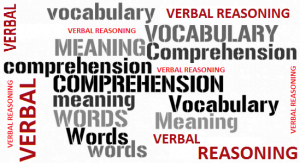 Here’s our challenge for you: a cursory glance at this blog (and even this introduction!) will radically improve your vocabulary. Read it and see if it doesn’t! If you find the words challenging, take a look at the explanations below the article below. They are all from the high-frequency GRE list.
Here’s our challenge for you: a cursory glance at this blog (and even this introduction!) will radically improve your vocabulary. Read it and see if it doesn’t! If you find the words challenging, take a look at the explanations below the article below. They are all from the high-frequency GRE list.
Any journey gives you a chance to take an exciting break from the soporific routine of everyday life. In fact, travelling to places and cultures very different from your own can be a visionary experience. In some cases the sights and sounds of an exotic locale can seem surreal. But going solo takes travel to a different level altogether.
It is true that solo travel can have its disadvantages. Most of us would be wary of going solo because of the difficulties we might face: communication problems, cultural misunderstandings and loneliness among them. On the other hand, people who have never traveled on their own before often describe their first solo trip as a liberating experience. Traveling alone gives you the chance to fully indulge your own curiosity and predilections without being hampered by a companion’s prejudices, tastes, or preferences. You can do exactly what you want to do – all the time. Always wanted to try surfing? Sign up for a class and go for it! There’ll be no one sitting on the beach bored and impatient while you’re out on the waves having a great time. If you are connoisseur of food, a vacation alone will give you opportunities to experiment to your heart’s content with the local cuisine. And there are attractions that will augment the pleasure of the experience. A frenzied shopping spree at the local markets, especially for a solo woman traveler, can be an exhilarating experience.
Further, a little preparation and common sense can spare you the difficulties of solo travel. A detailed itinerary, a meticulous study of maps and other local information is the ticket to a smooth vacation. Also, as unfamiliar sights and sensations inundate you, you must take care not to be gullible or overconfident. Without a companion to watch your back, you are potentially vulnerable to antisocial people and hazardous situations. However, a solo traveler can also blend in more easily than a group; and not drawing too much attention is a good way to stay safe. And there may be compensations: solo travelers who clearly need assistance often have the good fortune to experience the benevolence and magnanimity of the locals. So, traveling solo need not necessarily is more dangerous than going to the movies or having dinner by yourself in your own city.
And, there is a final reward for the adventurous of soul: if you are willing to put away your fear of the unknown, you will discover the paradox at the heart of solo travel: traveling alone far from your roots and all you have known, you will discover not merely new places, you will discover yourself!

OK, for those who had a little difficulty with the blog or just want a sharper understanding of the vocabulary, here are the 23 high-frequency GRE words that this blog covered along with their meanings, and illustrative sentences. Find the ones you had trouble with and read them through.
Cursory (adjective): done or made quickly: “Even the most cursory look at the organization’s records shows problems.”
Radical (adjective): favoring extreme changes in existing views, habits, conditions, or institutions: “The new president has made some radical changes to the company.”
Benevolence (noun): an act of kindness, disposition to do good: “People either think their benevolence benefits them materially, or gain satisfaction from altruism.”
Visionary (adjective): relating to a vision (that is, a hallucinatory dreamlike experience); marvelous and unreal: “His visionary paintings seem to come from another world.” (Noun) having or showing clear ideas about what should happen or be done in the future, [She is considered a visionary leader amongst her peers]
Prejudice (noun): a bias or assumption; a poorly founded belief: “Many people have the prejudice that only native speakers can teach a language well.” “At first I doubted that he could really be an expert programmer because he didn’t have a degree, but I abandoned that prejudice as soon as I saw how brilliant his coding was.”
Surreal (adjective): seemingly unreal; giving the impression of being unreal; very strange: “I just had a rather surreal conversation with a man who came up to me on the street and told me that aliens from another planet were about to invade the earth.”
Indulge (verb): to give free rein to something; to allow something to follow its own inclination: “I didn’t really want to listen to him talk about his problems, but I indulged him because he was obviously so lonely.” “When someone insults you, you should not indulge your impulse to insult him in return: just walk away.”
Predilection (noun): a preference or tendency: “She has a predilection for chocolate soy milk.” “My dog has an embarrassing predilection to steal people’s floaters and chew them to pieces.”
Soporific (adjective): causing sleep; boring: Only an enormous cup of coffee can keep me awake during one of his soporific lectures.”
Wary (adjective): cautious (of something): “I’m wary of getting into a conversation with her, because once she starts talking she doesn’t stop for hours.”
Augment (verb): to increase something by adding something to it: “You need to augment your CV a bit. Are there any projects or work experience you may have left out?” “We can augment the effect of this drug by adding another.”
Inundate (verb): to flood; to overwhelm; to come at in great quantity; to flood with something: “I assure you that once you complete your M Tech at our college, companies will inundate you with job offers.”
Gullible (adjective): too ready to accept what one is told; too easily persuaded: “Shortly after getting off the plane at Mumbai, a gullible tourist paid a street vendor five thousand rupees for two samosas.”
Itinerary (noun): the plan of a journey: “Why is the bus stopping here? I didn’t think this town was on the itinerary.” “Once I actually start driving I tend to forget about the itinerary and just follow my heart.”
Meticulous (adjective): very careful and thorough; giving attention to details; reflecting or characterized by such carefulness: “He is an extremely meticulous programmer: his code is always perfect the first time.”
Vulnerable (adjective): in danger of being injured or attacked: “Homeless women are far more vulnerable than homeless men.” “The country was vulnerable to attack from the east because all its forces had been moved to meet the attack on its western border.”
Hazardous (adjective): dangerous; perilous: “He has been convicted twice for hazardous driving.” “This housing society was built on ground contaminated with hazardous chemicals.”
Magnanimity (noun): bigheartedness; greatness of heart; selfless generosity: “It requires great magnanimity to truly forgive someone who has badly injured you.” “He was known for the magnanimity he showed to his friends, whom he never hesitated to help with money or other assistance whenever they needed it.”
Connoisseur (noun): someone who has gained a profound knowledge of some thing or activity by frequently exposing himself to it over a long period of time: “He became a connoisseur of Japanese films by watching thousands of them over the years.” “I consider myself something of a connoisseur of idlis, having eaten tens of thousands of them over the years.”
Cuisine (noun): a type of cooking, usually defined by its national origin (Chinese cuisine; Continental cuisine; Mexican cuisine): “I don’t like Italian films much, but I love Italian cuisine.”
Frenzied (adjective, past participle of the verb to frenzy): characterized by extreme excitement, agitation, and distress: “When the dogcatcher caught the dog in his net, the animal at first made frenzied attempts to struggle free, then became still as if he realized that there was no point.”
Exhilarating (adjective, past participle of the verb to exhilarate): thrilling; causing a feeling of extreme happiness and excitement: “Climbing to the summit of a mountain is an exhilarating experience.”
Paradox (noun): an apparently self-contradictory or impossible thing, situation, or statement: “The most intelligent men are often the least effective leaders: history shows us this paradox again and again.”







 If you found the last post on roots helpful, here are 2 more roots which cover 25 GRE words. For those of you who have come directly to this post, here’s a link that will help you understand why we are talking about roots so much:
If you found the last post on roots helpful, here are 2 more roots which cover 25 GRE words. For those of you who have come directly to this post, here’s a link that will help you understand why we are talking about roots so much: 

